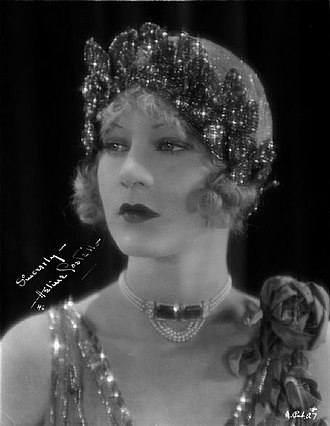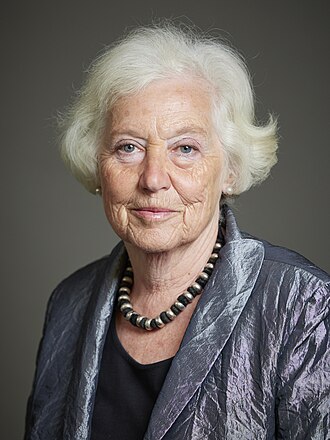Discover Your Roots
SIGN UPDiscover Your Roots
SIGN UPHelene is a female name of French origin, meaning "Form of Helen." This classic name has been embraced by notable individuals, including French actress and singer Hélène Rollès. In the realm of arts and entertainment, "Hélène" appears in various forms, such as an opera by Saint-Saëns, an album by Roch Voisine, and a drama film. Additionally, the name has also been associated with literary works and natural phenomena, including a 2024 Atlantic hurricane and a moon of Saturn. With a rich history and cultural significance, Helene is a name that continues to inspire and resonate across various domains. For related topics, readers can explore pages beginning with "Helene" and "Hélène," as well as references to Helena, Helen, Eleni, and Ellen.

Helene Costello (June 21, 1906 – January 26, 1957) was an American stage and film actress, best known for her work during the silent film era. Born in New York City, she came from a family deeply rooted in the entertainment industry, with her father being the prominent actor Maurice Costello and her mother, Mae Costello, an actress. Helene began her acting career as a child and quickly rose to fame, earning a reported $3,000 a week at the peak of her popularity in the mid-1920s. She was recognized as a WAMPAS Baby Star in 1927, a prestigious accolade for up-and-coming actresses. Costello's transition to sound films proved challenging, and personal struggles, including health issues, addiction, divorces, and financial difficulties, impacted her career. Despite her hardships, Costello made a comeback with notable roles in films like "Riffraff" (1936) and "The Black Swan" (1942). Her personal life was marked by four marriages, all of which ended in divorce, and she tragically passed away in 1957 due to pneumonia following treatment for drug and alcohol addiction at Patton State Hospital. Helene Costello's legacy is honored with a star on the Hollywood Walk of Fame for her contributions to the film industry.

Helene Cooper is a prominent Liberian-born American journalist known for her work as a Pentagon correspondent for The New York Times. She has made significant contributions to journalism, particularly as a member of the Pulitzer Prize-winning reporting team for International Reporting in 2015, covering the Ebola virus epidemic in West Africa. Cooper's career has also included roles as the paper's White House correspondent and assistant editorial page editor. Her extensive experience spans from reporting on trade, politics, race, and foreign policy to focusing on international economics. In addition to her journalistic endeavors, Cooper is a published author, with notable works including "Madame President" and "The House at Sugar Beach," both receiving critical acclaim. Her personal history, including her family's experiences as refugees from Liberia, has informed her perspective and writing. Cooper's impactful storytelling and insightful reporting have solidified her reputation as a respected journalist and author.

Helene Valerie Hayman, Baroness Hayman, is a prominent British politician who served as the Lord Speaker of the House of Lords in the Parliament of the United Kingdom. She began her political career as a Member of Parliament for the Labour Party, making history as the youngest MP of the 1974–79 Parliament at the age of 25. Later, she became a life peer in 1996 and went on to hold various ministerial positions in the government. Baroness Hayman has also been actively involved in health-related issues, serving on medical ethics committees and governing bodies in the National Health Service and health charities. Notably, in 2006, she made history again by winning the inaugural election for the newly created position of Lord Speaker, becoming the first person to hold this title. As the Lord Speaker, she focused on being an impartial presiding officer, similar to the Speaker in the House of Commons. Throughout her career, Baroness Hayman has been recognized for her contributions and was honored with the title of Dame Grand Cross of the Order of the British Empire. Her dedication to public service and her significant impact on British politics have solidified her as a respected figure in the political arena.

Helene von Breuning (née von Kerich; 3 January 1750 – 9 December 1838) was an influential figure in the life of renowned composer Ludwig van Beethoven. She was a member of the Bonn upper class and played a significant role in shaping Beethoven's early career. Helene, often referred to as Beethoven's "second mother," engaged the young Beethoven as a music teacher for her children, provided him with educational support, and introduced him into important social circles. Helene was the daughter of Stephan von Kerich, a privy councilor to the last Archduke Maximilian Francis of Austria. After the tragic death of her husband, Helene lived with her four children in Bonn and later in Kerpen and Beul. The Breuning home in Bonn became a happy retreat for Beethoven, providing him with warmth and closeness that he lacked in his own troubled home life. Helene's support and encouragement helped Beethoven to overcome diffidence and refine his social manners. She also contributed to cultivating his passion for literature and poetry. Helene von Breuning's significant impact on Beethoven's life and career has left a lasting legacy in the history of classical music.

Helene Bresslau Schweitzer (25 January 1879 – 1 June 1957) was a remarkable German medical missionary, nurse, social worker, linguist, public medicine enthusiast, editor, feminist, and sociologist. She is best known as the wife and confidant of Albert Schweitzer, with whom she co-founded the Albert Schweitzer Hospital. Despite her significant contributions, her role was not widely acknowledged during her lifetime. Born into a Jewish family in Berlin, Helene was baptized into the Christian religion due to prevalent anti-Semitism. Her relationship with Albert Schweitzer was characterized by independence and non-exclusivity, allowing them to pursue their individual aspirations while sharing a common ideology of caring for others. After marrying in 1912, they embarked on a medical missionary adventure in Africa, establishing the Albert Schweitzer Hospital in Lambaréné, Gabon. Helene's diverse educational background included music studies, teaching, art history, nursing, and social work, reflecting her insatiable passion for learning and dedication to improving the social sphere. Her journey with Albert in Africa further showcased her unwavering commitment and resilience in challenging environments. Helene Bresslau Schweitzer's legacy continues to inspire and resonate as a testament to her exceptional contributions to healthcare and social welfare.
All images displayed on this page are sourced from Wikipedia or Wikimedia Commons.We use these images under their respective Creative Commons or public domain licenses. Wherever applicable, author attributions and license information are provided. If you believe an image is used incorrectly or outside its license terms, please contact us so that we can review and correct the issue.